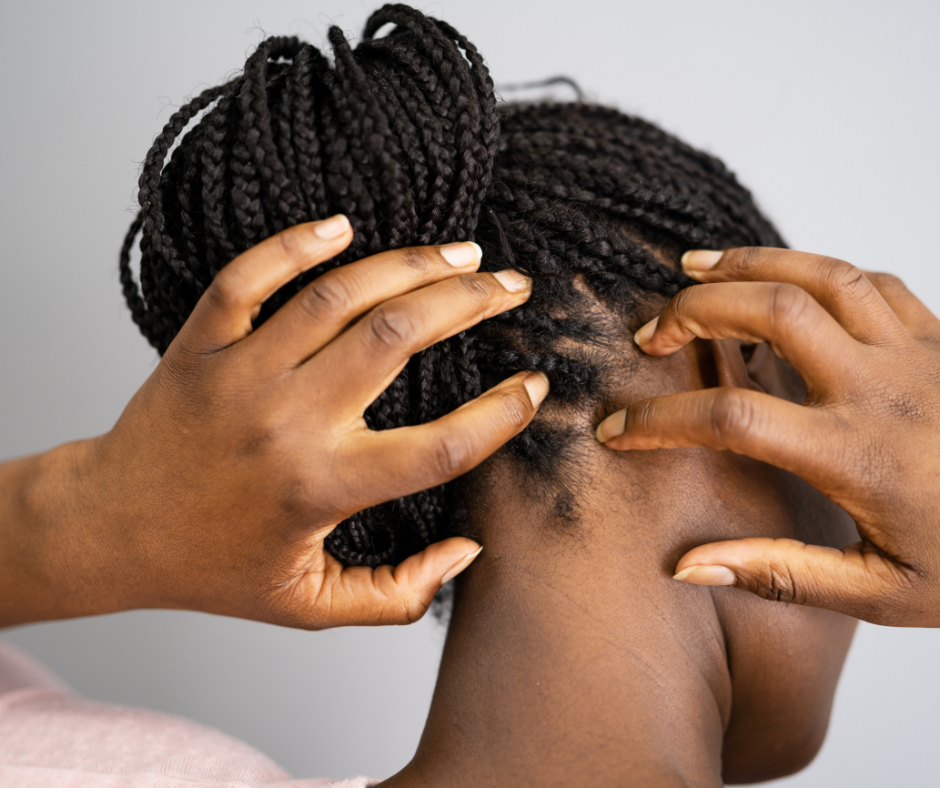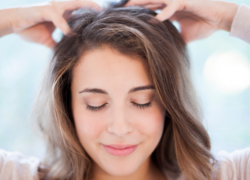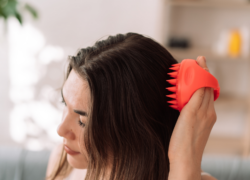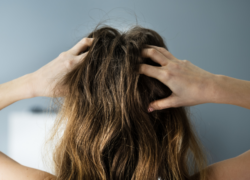
Maintaining a healthy scalp is crucial for overall hair health and comfort. When you are experiencing itchiness and flakiness, you may question if its dry scalp or dandruff. In this article we will be discussing ways to discern differences between these two conditions. While they may share similar symptoms, understanding their disparities is vital for effective treatment.
What Causes Dry Scalp?
Dry scalp occurs when the skin on the scalp lacks sufficient moisture, leading to irritation and flaking. Several factors can contribute to this condition, including harsh weather conditions, excessive washing with hot water, using harsh hair products, and underlying skin conditions such as eczema or psoriasis. Additionally, certain lifestyle habits like dehydration and poor nutrition can exacerbate dry scalp symptoms.
Why Does My Scalp Itch?
Itchiness is a common complaint associated with both dry scalp and dandruff. In the case of dry scalp, itching is primarily caused by the lack of moisture, which prompts the skin to become irritated and inflamed. This sensation can be exacerbated by scratching, leading to further damage and discomfort.
On the other hand, dandruff is often accompanied by itching due to the presence of a yeast-like fungus called Malassezia. This fungus thrives on the scalp’s natural oils, leading to increased cell turnover and the shedding of dead skin cells, which appear as white flakes. The itching associated with dandruff is a result of the body’s inflammatory response to the presence of this fungus.
Dandruff vs. Dry Scalp: Understanding the Difference
Differentiating between dandruff and dry scalp can be challenging due to their similar symptoms. However, there are distinct characteristics that can help identify each condition:
- Appearance: Dandruff flakes are typically larger and oilier than those associated with dry scalp, which tend to be smaller and powdery in texture.
- Scalp Sensitivity: Dry scalp is often accompanied by feelings of tightness and sensitivity, whereas dandruff is characterized by inflammation and redness.
- Underlying Causes: While dry scalp is primarily caused by a lack of moisture, dandruff is linked to the overgrowth of Malassezia fungus on the scalp.
- Response to Treatment: Dry scalp often responds well to moisturizing treatments and gentle scalp care routines, whereas dandruff may require specialized anti-fungal shampoos or medicated treatments to address the underlying fungal infection.
Treatment and Prevention
Effective management of both dry scalp and dandruff involves adopting a comprehensive approach that addresses underlying causes and soothes symptoms:
- Hydration: Keeping the scalp and hair adequately hydrated is essential for preventing dryness. Opt for moisturizing shampoos and conditioners formulated specifically for dry scalp.
- Gentle Cleansing: Avoid overwashing the hair, as this can strip the scalp of its natural oils and exacerbate dryness. Opt for mild, sulfate-free shampoos and lukewarm water for washing.
- Anti-Fungal Treatments: For dandruff, use medicated shampoos containing ingredients like ketoconazole, selenium sulfide, or zinc pyrithione to combat fungal overgrowth and reduce flaking.
- Nutrition and Lifestyle: Maintain a balanced diet rich in essential nutrients like vitamins A, C, and E, as well as omega-3 fatty acids, which promote scalp health. Stay hydrated and manage stress levels, as these factors can also impact scalp condition.
Our professionals at Parker Trichology Center and Salon are here to help you regain top notch hair health and your confidence back. To meet with our certified trichologists located in Carrollton TX, contact our salon here or call 214-307-6200 today. Do not wait to heighten your health and your hair growth experience.



